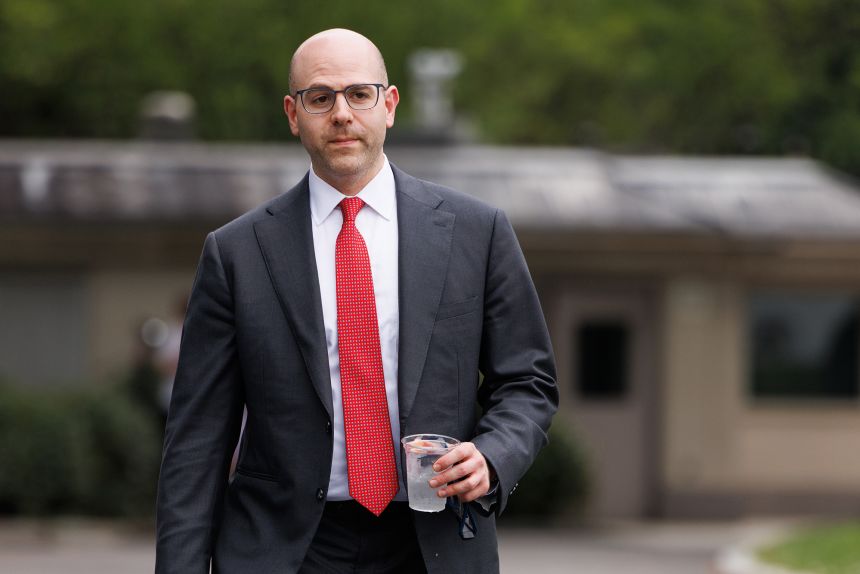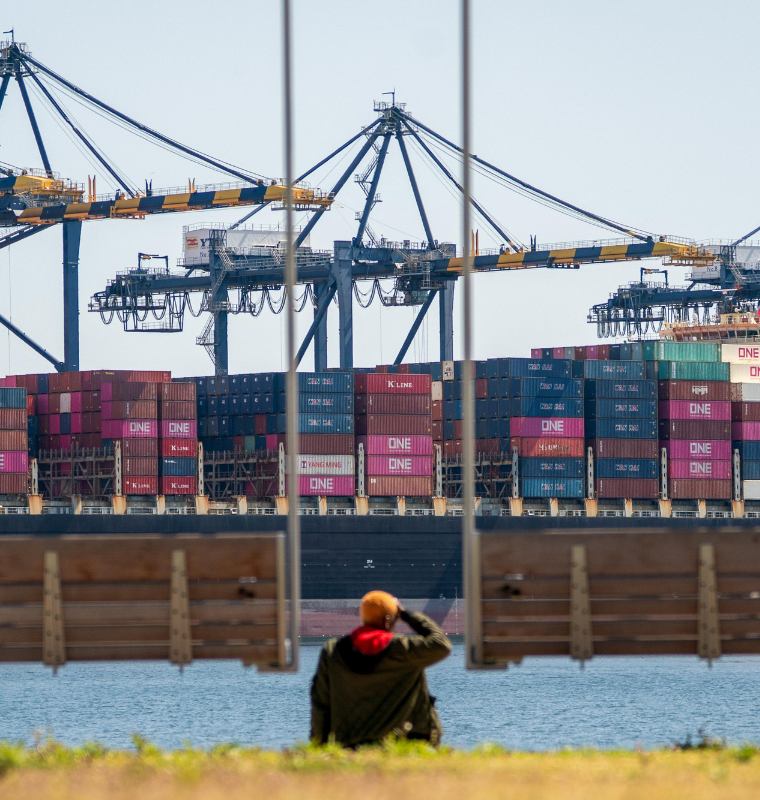Fed Board Candidates Miran and Bullard Dismiss Tariffs as Inflation Drivers
Fed Board Candidates Miran and Bullard Dismiss Tariffs as Inflation Drivers
By
Leah Rosenfeld
Last updated:
August 13, 2025
First Published:
August 13, 2025

Getty Images
Two economists under consideration for Federal Reserve Board positions pushed back strongly Tuesday against the widespread belief that President Donald Trump’s tariffs are driving inflation higher. In separate interviews with CNBC, Stephen Miran and James Bullard rejected the notion that tariffs contribute to sustained inflationary pressures—a stance consistent with Trump’s push for looser monetary policy.
Economists Downplay Tariffs’ Role in Inflation
Stephen Miran, currently chair of the White House Council of Economic Advisers and recently nominated to fill the remaining term of former Fed Governor Adriana Kugler, emphasized that there is “no evidence whatsoever” showing tariffs have caused inflation to rise. Miran stated, “Lots of folks who were expecting doom and gloom, it just hasn’t panned out, and it continues to not pan out.”
Similarly, James Bullard, former St. Louis Fed president and one of the frontrunners to replace Fed Chair Jerome Powell next May, affirmed that the data over the past six months does not support the idea that tariffs have fueled inflation. Bullard suggested the Federal Open Market Committee (FOMC) will likely begin cutting interest rates as soon as September and could reduce rates by a full percentage point over the next year, bringing policy closer to neutral territory.
Inflation Trends and Monetary Policy Outlook
July’s Consumer Price Index (CPI) came in at an annual rate of 2.7%, slightly below Wall Street expectations but still above the Fed’s 2% target. Despite this, both Miran and Bullard view the inflationary impact of tariffs as limited and temporary. Bullard explained, “Tariffs don’t cause inflation. Taxes don’t cause inflation. What you’re seeing in the data are muted effects that are one-time increases in the price level.”
Their comments come amid ongoing tension between President Trump and Fed Chair Powell, with Trump publicly criticizing the Fed’s rate policies and demanding aggressive cuts—up to 3 percentage points according to the president. Trump recently labeled Powell’s actions as “too late,” while praising the economy for outperforming expectations despite monetary policy.
Fed Independence and Political Pressures
Both economists underscored the importance of maintaining Federal Reserve independence from political interference. Bullard remarked, “The president is entitled to his views… But if you don’t want to hear dissenting opinions, this is probably the wrong job.”
Miran also supported the Fed’s autonomy, even as the administration pressures the central bank to adopt policies favoring growth over inflation control. Their balanced approach highlights the complex dynamics facing the Fed amid competing economic and political priorities.
Broader Economic Context
While many economists outside the White House warn that tariffs risk sustaining inflationary pressures by raising import costs and disrupting supply chains, Miran and Bullard’s views reflect a more nuanced interpretation of recent data. Their stance may influence the Fed’s policy trajectory as inflation moderates but economic uncertainty persists.
Popular articles
Subscribe to unlock premium content
Merch, Meals, and Memories

Innovating One Feature at a Time

Zero Taxes, Maximum Attraction – Why Monaco is the ultimate playground for the wealthy.

Merch, Meals, and Memories

Innovating One Feature at a Time

Merch, Meals, and Memories







.png)

